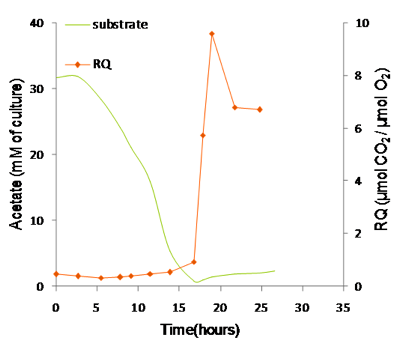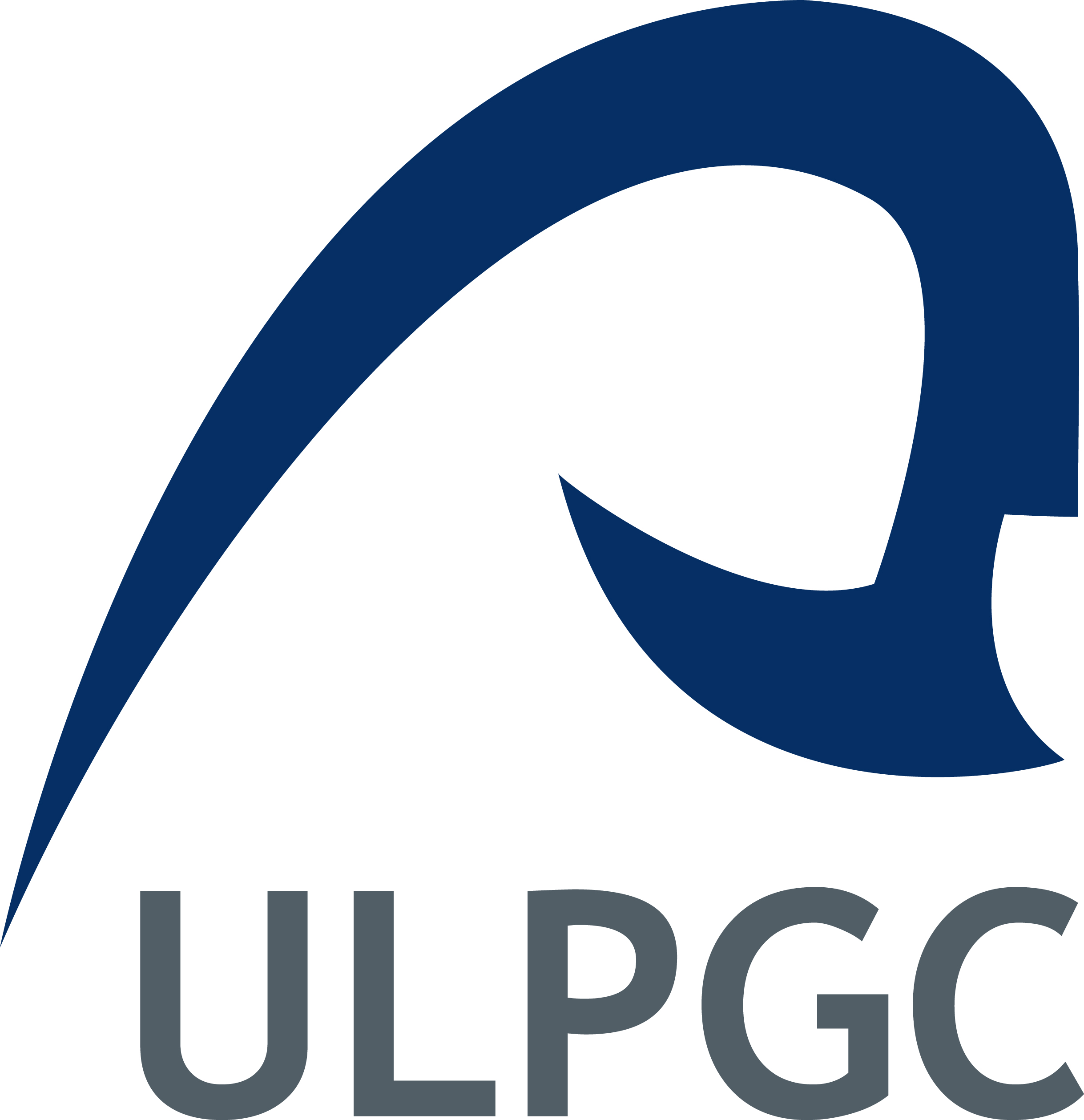Ph.D. Program in Oceanography and Global Change at the Canary Islands, Spain
The majority of studies of respiration in the aquatic ecosystems are based on assumed respiration quotient (RQ)) values ranging from 0.7 to 1.2. Such RQs are widely used in ocean ecosystems models, calculations of carbon flux, and in evaluations of the autotrophic-heterotrophic nature of the ocean, its metabolic balance. We show that RQ can range higher than reported before. To investigate this wide range, we examine time-courses of the physiological respiration rates (RO2 and RCO2) and activities of the enzyme, isocitrate dehydrogenase (IDH) and the respiratory ETS (potential respiration, φ) in acetate and pyruvate-grown Pseudomonas nautica and Vibrio natriegens. In all cultures, regardless of bacterial species and carbon source, the RQ tended to rise nearly an order of magnitude from values below 1 during nutrient sufficiency to values close to 10 during nutrient deficiency. These results argue that many ecosystems models, oceanographic calculations of carbon flux, and evaluations of the ocean’s metabolic balance need to be reconsidered in light of this RQ variability.




